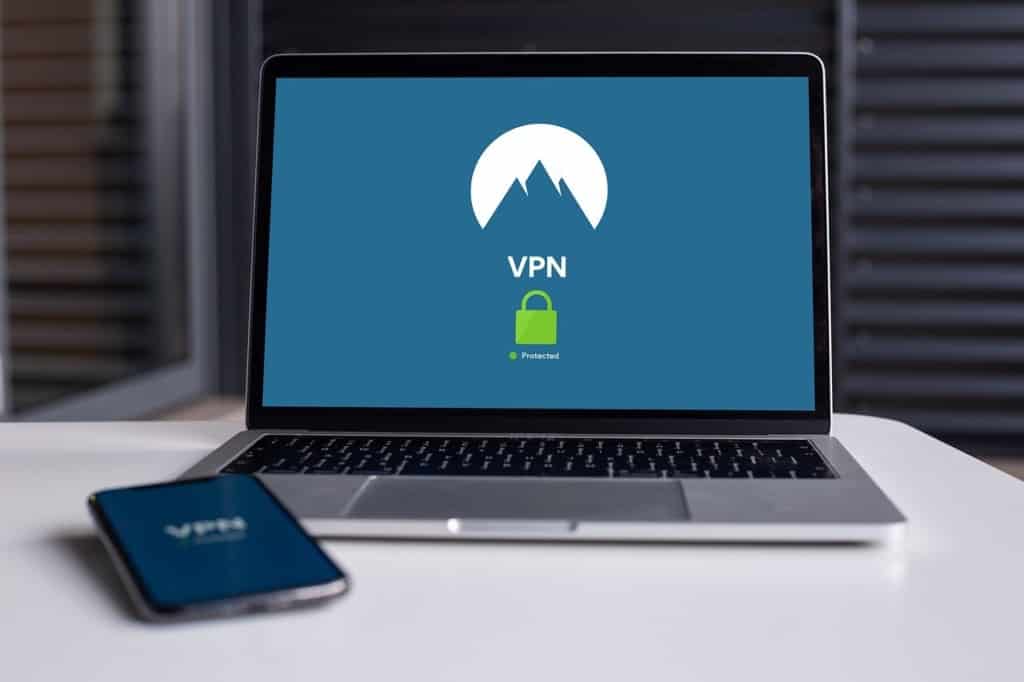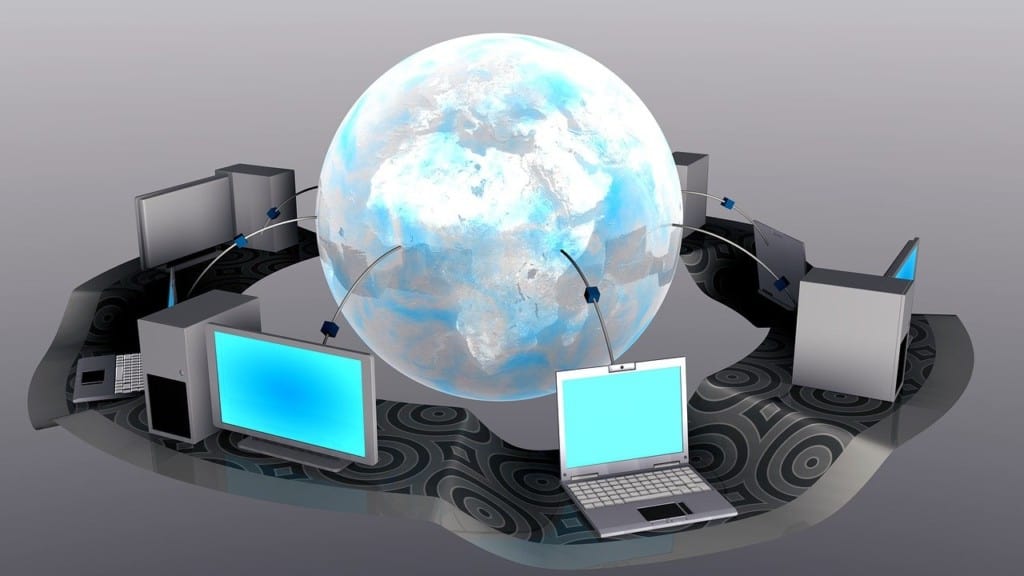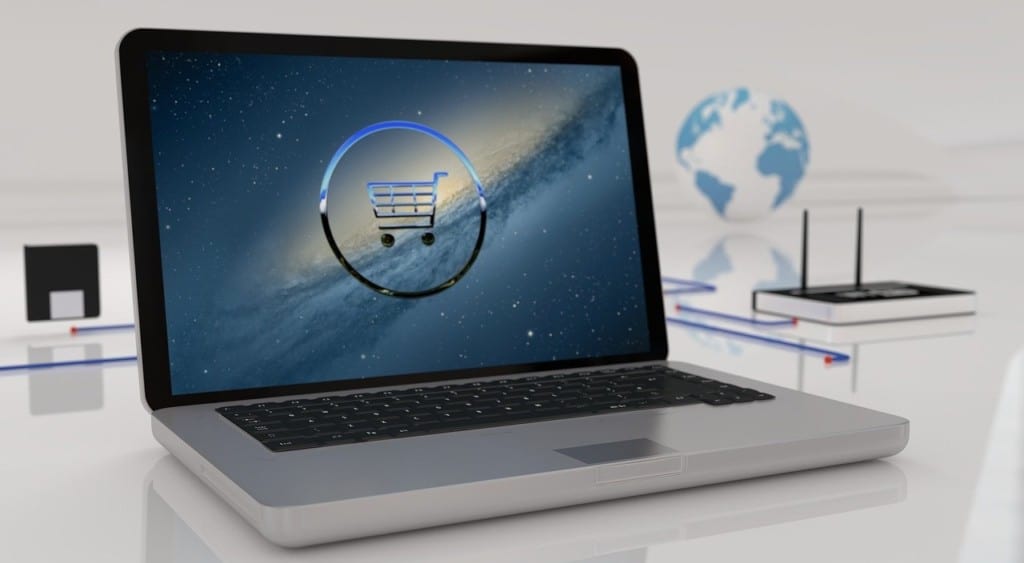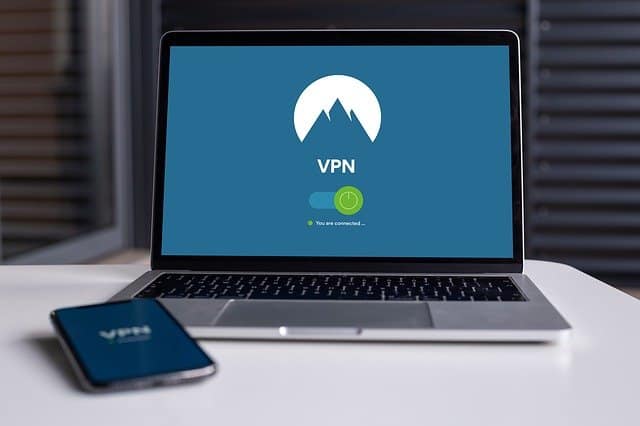If you’re thinking about getting a VPN for your Mac but not sure what they do or when to use one, here we’ve taken a closer look at what a VPN does and the reasons to use one in 2025.
Table of Contents
- What Is A VPN?
- Are VPNs Legal?
- Is Using A VPN On A Mac Safe?
- Do Macs Have A Built-In VPN?
- Can You Share A VPN Connection?
- Do VPNs Work On Apple Silicon Macs?
- Using VPNs With A VPN Router
- Paid vs Free VPNs
- Why Use A VPN on a Mac?
- 1. Privacy & Security
- 2. Watch Geo-blocked Content
- 3. Remotely Access Another Mac
- 4. Prevent Bandwidth Throttling
- 5. Better Shopping Deals
What Is A VPN?
VPN is short for Virtual Private Network (VPN) and is basically a “tunnel” that masks your location and encrypts or re-routes your internet traffic.
The best VPNs for Mac do this securely, quickly and easily.
This has several advantages, the most popular ones being:
- Your internet usage and IP address remain anonymous or at the least, very difficult to trace.
- Your internet activities are encrypted so that no one, including your ISP or even VPN provider can intercept and read anything you submit over the net (including which apps you’re using at any one time).
- You can access websites or unlock streaming services such as Netflix and BBC iPlayer that may be geo-blocked in your region.
Note that although a proxy can perform some of these functions, a VPN is not the same thing as a proxy.
Although using a proxy re-routes your internet connection via a different location, it doesn’t provide anything like the protection or reliability of a VPN.
Are VPNs Legal?
It’s perfectly legal to use a VPN in most countries as long as it’s for legitimate purposes. If you are planning on using a VPN for illegal activities however, then think again.
No VPN provider is above the law and if an authority legitimately suspects you of criminal activity, it can demand data about your activities from the VPN provider you’re using.
This may include using a VPN for P2P downloading which is illegal for copyrighted material in many countries.
For this reason, many VPNs have a strict “no logs” policy which means they do not store any information about users surfing activities or connections.
It goes without saying that it is the user’s responsibility to ensure that they adhere to lawful use of VPNs.
However, as long as the material you are downloading is legal and not copyrighted, a VPN is perfectly legit and can even help in boosting download speeds.
It should also be noted that some countries that restrict free speech may restrict or ban the use of VPNs to prevent them getting around national firewalls.
Is Using A VPN On A Mac Safe?
Using a VPN is perfectly safe and in fact, recommended if you want to protect your privacy online.
Using a VPN actually makes your Mac less vulnerable to attack by cyber criminals and hackers as your internet traffic is encrypted and much harder to intercept.
Do Macs Have A Built-In VPN?
You can setup a VPN on a Mac without subscribing to any VPN services if you choose so that you can access a Mac remotely or connect to a home office network remotely.
However, you’ll need to know the server address and password of the virtual private network you want to connect to such as for an office or business.
You’ll then need to configure and setup the VPN via your network settings which requires some technical knowledge.
Apple also has something called Private Relay which is part of iCloud although it isn’t the same as a VPN – it’s more of an encryption tool.
The great thing is that with just one VPN subscription, you can also share a VPN connection on your Mac via WiFi with other devices such as PlayStation, iPhone, iPad, XBox and more so that they can use it too.
Most VPN services allow you to install and use them on multiple devices anyway but sharing your Mac’s VPN allows you to use it with any device you choose.
Do VPNs Work On Apple Silicon Macs?
Almost all VPNs work with M-Chip Series Macs.
However, some VPNs require Rosetta to “translate” them to work on Apple Silicon Macs which doesn’t work as well as native Apple Silicon M-Chip compatible VPN clients.
It also drains your MacBook battery much quicker if the app is not optimized or native for Apple Silicon Macs.
The best VPNs for Apple Silicon Macs are NordVPN and Surfshark which both have native Apple Silicon Mac desktop apps which means they are optimized for the M series chips.
Using VPNs With A VPN Router
If you really want to take your maximize your security on your Mac using a VPN, then you need a dedicated VPN router.
Most standard routers or those provided by ISPs can still be vulnerable to attack or snooping even if you use a VPN to secure your internet connection.
A VPN router is far more secure and guarantees snooping against even the most aggressive attempts to steal your data.
There are an increasing number of VPN routers on the market but one worth checking out is Swedish based Vilfo VPN Routers which works with all VPN networks that support the OpenVPN protocol such as Surfshark and NordVPN.
You can check out our full review of Vilfo VPN router for more.
We can also recommend checking out Flashrouters which specializes in VPN routers of all kinds.
Paid vs Free VPNs
The best VPNs for Mac all require subscriptions but the market is so competitive that most offer huge discounts of up to around 80% on longer subscriptions.
However, there are also free VPNs for Macs although they don’t offer anything like the speed, privacy, locations, bandwidth or security of paid services.
If you’re going to be using a VPN regularly, we strongly recommend using a paid VPN service over a free one.
Why Use A VPN on a Mac?
As we’ve seen, VPNs have a number of uses but here’s a closer look at the main advantages of using a VPN on a Mac.
1. Privacy & Security

For many people, the number one reason for using a VPN is privacy protection and greater security online.
In the early days of the internet, there was far less tracking by both internet service providers, advertisers, search engines and authorities.
However, as the internet has developed and invaded every facet if our day-to-day lives especially via mobile devices, this situation changed until most people are tracked one way or another from the minute they turn on a computer or mobile device until the moment they switch it off.
In most cases, this is simply advertisers trying to target their advertising more accurately at you but in some cases in can be malicious and an invasion of privacy that many users feel uncomfortable about it.
The increased tracking of users across Facebook, WhatsApp and Instagram which are now all owned by Facebook is a good example of the problem we’re talking about.
HTTPS provides some protection when you submit data in a website or service but it’s very limited and a VPN provides far greater security.
From a security standpoint, Macs are generally considered more secure than Windows PC thanks mainly to the robustness of macOS.
However, macOS isn’t without vulnerabilities and Mac users are increasingly being targeted by cyber-criminals and VPNs are an extremely cost-effective way to protect yourself from eavesdropping, theft of passwords, logins and financial data.
Particularly if you access a WiFi network in a coffee shop or hotel for example, there are no guarantees that the network is secure.
Your login details for banking and passwords for other sites are at risk if someone is “listening in” on your connection.
Just because a WiFi connection is protected by a WiFi password, does not mean it is necessarily secure.
A hacker can intercept your Mac’s communication between the WiFi network and your Mac and steal data. These attacks are often known as man-in-the-middle attacks.
Other things VPNS can help with are malware blocking, ad-blocking and parental controls to restrict access to certain sites.
As well as all this, many ISPs monitor and sell your data onto third parties so even your home connection is not as private as you think it is nowadays.
2. Watch Geo-blocked Content

Many websites, apps and services have content that is only accessible in certain countries such as Hulu and Netflix in the USA and the BBC iPlayer in the UK.
This is known as geo-blocking and prevents you watching the US version of Netflix in the UK for example.
A VPN can allow you to to circumvent these restrictions by making the app think you are accessing it from an authorized region.
So for example, if you want to access US Netflix on Hulu outside of the US or BBC iPlayer outside of the UK, a VPN can help you do so.
Some sites forbid streaming of their content outside of specific countries or regions though and could cancel your subscription if you’re suspected of doing so.
Content providers like Netflix are also constantly updating their systems to prevent streaming outside of authorized regions and you may find that your VPN is suddenly unable to unlock it anymore.
3. Remotely Access Another Mac

If you want to work at home or away from the office, a VPN can allow you to access a Mac remotely. By logging into the VPN, you can access your office network securely as if you were in the office.
Office VPN networks are usually setup by your office administration team and don’t require paid VPN services.
An alternative to using an office VPN is using remote desktop software on a Mac which also allows you to remotely connect to another Mac and is often used by help desks when troubleshooting.
As long you have the VPN server address and password however, you can setup a VPN on a Mac yourself to connect to an office network, company intranet or home office computer.
Although setting-up your own VPN doesn’t offer as many advantages as a paid VPN service, it is free to do and allows you to connect securely to a remote network.
4. Prevent Bandwidth Throttling

Many Internet Service Providers throttle the amount of bandwidth you can use on your home internet connection which can affect the quality of streaming and speed on your connection.
If your ISP detects that you are streaming lots of content from Netflix, YouTube or gaming for example, it may throttle your bandwidth which leads to buffering, slow connections and frustration all round.
However, if your traffic is encrypted via a VPN, your ISP can’t identify your activities and therefore bandwidth throttling, which are usually automatically triggered when certain thresholds are met, won’t affect you.
5. Better Shopping Deals

Using a VPN get also help you get better deals on prices and services online. This is because many sites use cookies and other identifying data to determine your location and thus tailor prices and offers based on where you live.
This is particularly common when it comes to airlines and online retailers.
By using a VPN, you can get deals that aren’t available in your country and also prevent sites from inflating prices based on your location.
Of course some deals are only available to residents in particular countries but for those that are available worldwide and inflate prices simply based on your location, a VPN can help get you a better deal.


